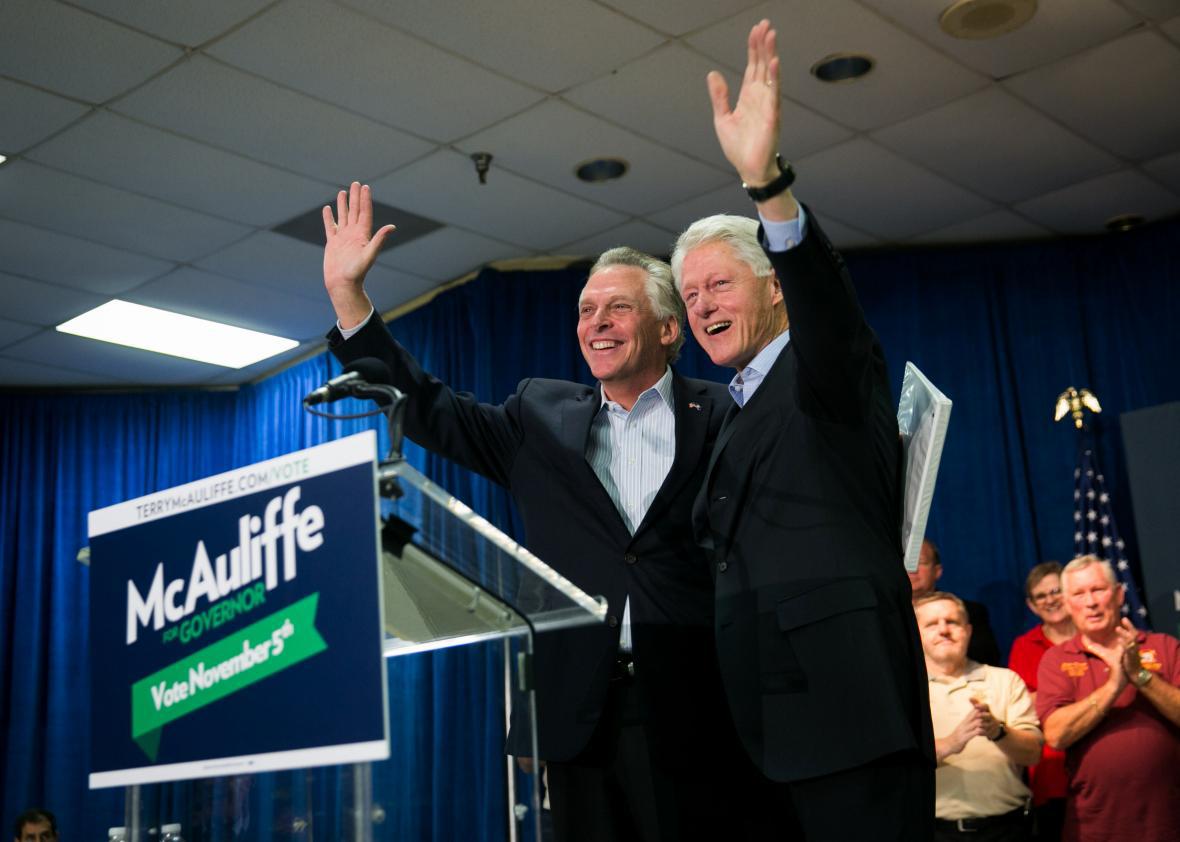Is Virginia Gov. Terry McAuliffe a brave champion of civil rights, or a craven Democratic politico bent on delivering electoral victory to his old friend Hillary Clinton by any means necessary?
That was the question Friday after McAuliffe announced he’d be using his executive powers to grant some 200,000 convicted felons in Virginia the right to vote. While criminal justice reformers applauded McAuliffe’s boldness—in the New York Times, the Sentencing Project’s executive director Marc Mauer called it “the single most significant action on disenfranchisement that we’ve ever seen from a governor”—Republicans cast aspersions on his motives and questioned the morality of letting people who have committed acts of violence vote.
“It is hard to describe how transparent the Governor’s motives are,” said Speaker of the House William J. Howell in a statement premised on the not-crazy idea that most felons would vote Democratic if given the choice. “The singular purpose of Terry McAuliffe’s governorship is to elect Hillary Clinton president of the United States. This office has always been a stepping stone to a job in Hillary Clinton’s Cabinet.”
Robert Bell of the Virginia House of Delegates struck an even more dramatic note in a statement to the Washington Post: “A murder victim won’t get to vote, but the man that killed them will,” he said. “You will have child pornographers, human traffickers, robbers, rapists, murderers eligible to sit on juries and hear criminal cases of people who commit similar crimes.”
McAuliffe, for his part, is characterizing the move as an act of common-sense fairness, arguing that even people who have done terrible things deserve to get back the full rights of citizenship once they have paid their debt to society. “People have served their time and done their probation,” McAuliffe was quoted as saying in the Times. “I want you back in society. I want you feeling good about yourself. I want you voting, getting a job, paying taxes. I’m not giving people their gun rights back and other things like that. I’m merely allowing you to feel good about yourself again, to feel like you are a member of society.”
Though McAuliffe’s successor in the governor’s office will be able to reverse the voting rights action if he or she so chooses, the move nevertheless represents a sharp rebuke to longstanding disenfranchisement laws targeting felons that have had a disproportionate effect on Virginia’s black population.
According to Mauer of the Sentencing Project, a nonprofit that promotes criminal justice reform, Virginia is one of 12 states in the country that prohibit people who have been convicted of felonies from registering to vote even after they’ve served out their parole and probation terms. In place since the Civil War, the Virginia restrictions were expanded in the early 20th century, and as noted in the Times, enjoyed the support of one state senator who said they would “eliminate the darkey as a political factor in this State” and ensure “the complete supremacy of the white race in the affairs of government.”
Here’s more from the Times:
Advocates who have been working with the governor say they are planning to fan out into Richmond communities Friday afternoon to start registering people. Until now in Virginia, felons could apply to have their voting rights restored, but the process could be cumbersome and those who have committed violent crimes faced a waiting period. That will be eliminated by Mr. McAuliffe’s action.
[…]
Mr. McAuliffe, who took office in 2014 and campaigned to restore voting rights to felons, said that he viewed disenfranchisement as “a remnant of the poll tax” and that he had been “trying to figure out what more I can possibly do.” He has been working with his legal team for months to live up to his campaign promise. His action Friday will not apply to felons released in the future; the governor’s aides say Mr. McAuliffe intends to issue similar orders on a monthly basis to cover more people as they are released.
Expect Republicans in Virginia to challenge McAuliffe’s executive action in court; in the meantime, voting rights advocates are already starting to hit the streets of Richmond to register newly eligible voters.
